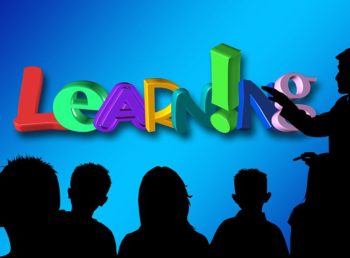 What Are the 6 Principles of IDEA?
What Are the 6 Principles of IDEA?
One of the most important aspects of special education is understanding the law. It’s big. It doesn’t make sense, but it’s the cornerstone of everything I do as a professional. It doesn’t matter which state you live in or which district your school is in these 6 principles are EVERYTHING! (Don’t worry I’ll share more on these later, and give you more details.)
The 6 Principles of IDEA are what school districts are held accountable for funding. They must adhere to these principles and concepts or risk losing funding. And knowing these core special education concepts helps you as a parent with a child with a disability. If you have IEP issues and are having trouble defining them, chances are that issue will fit into one of these 6 buckets. First, a little background.
What is IDEA?
IDEA is the Individuals with Disabilities Education Act. It was enacted in 1975 and was re-authorized in 1990 and 2004. Ideally, it is supposed to be updated as appropriate every 10 years, but you can see that doesn’t happen. IDEA was authorized by the federal government to ensure that all children with disabilities are provided with “equality of [educational] opportunity, full participation, independent living, and economic self-sufficiency.” Meaning an IEP is to prepare a child for further education, employment, and independent living.
To get special education services for a child, you have to follow a legal process. The most important law for this process is the Individuals with Disabilities Education Act (IDEA). It gives rights and protections to kids with disabilities. It covers them from birth through high school graduation or age 21 (whichever comes first). Parents and legal guardians also have rights under the law.
The IEP process should exhibit all of these principles. Trouble starts when something is left out. Everything from an IEP fits into one of these principles.
Of course, there often is an overlap of issues. For example, if a team does not include your parent concerns on the IEP or does not provide you with Prior Written Notice (PWN), you could correctly claim one or all of the following:
- Your child was denied a Free Appropriate Public Education (FAPE).
- You weren’t allowed meaningful parent participation.
- They didn’t put your concerns on a PWN.
The purpose of an IEP is to prepare a child for further education, employment, and independent living. This is IDEA law.
Free Appropriate Public Education
Under the IDEA, every child with a disability is entitled to a Free Appropriate Public Education (FAPE). The IDEA emphasizes special education and related services, which should be designed to meet a child’s “unique needs and prepare them for further education, employment, and independent living.”
The courts have held that the IDEA requires schools to prepare Individualized Education Plans, which provide “meaningful educational benefit” to children with disabilities. The “meaningful educational benefit” requirement includes a focus on raised student expectations, appropriate progress, and transition into postsecondary education and independent living.
Public schools and local school boards are responsible for ensuring that every child with a disability receives a FAPE.
Appropriate Evaluation
The Law requires that schools conduct “appropriate evaluations” of students who are suspected of having a disability. An appropriate evaluation must be implemented by a team of knowledgeable and trained evaluators, must utilize sound evaluation materials and procedures, and must be administered on a non-discriminatory basis. If your primary language is not English than the team must use evaluations that take this into account.
An appropriate evaluation must determine and make recommendations regarding a child’s eligibility for special education services in a timely manner. This means evaluations should be specific to the concerns surrounding the suspected disability. Evaluations should not be the cookie-cutter approach where everyone gets the same set of assessments.
To receive FAPE, each child needs the appropriate evaluations. Your child is entitled to the appropriate evaluations to determine if there is a disability as defined under IDEA.
Individualized Education Plan
The Individualized Education Plan (IEP) was established by the IDEA to help ensure every child’s access to a Free Appropriate Public Education. The IEP is a written document, developed and drafted by an IEP team, which is based on the evaluation information to address the student’s strengths and needs.
Under the IDEA, an IEP must include information regarding a student’s present levels of educational performance, annual goals, services and supplementary aids to be received, and a detailed explanation of instances where your child is not participating in the general classroom and why.
An IEP is also required to include information regarding consistent reporting on student progress as well as “transition” to adult life. Finally, it is required that an IEP account for the planning concerns of all stakeholders including you and your child, the strengths of a particular child, and the specific “academic, developmental, and functional needs” of the child.
The plan that your child receives must be individualized to their needs.
Least Restrictive Environment
Under the IDEA, a student is guaranteed placement in the Least Restrictive Environment (LRE) possible. Therefore, the IEP team must explore a number of alternatives for enabling your child to participate in the general education classroom. These may include classroom modifications, supplemental aids, and services, andalternative instructional methods, etc.
LRE is a concept that was decided by a Supreme Court case affecting Special Education. The main point of LRE is this: “You must be educated in the least restrictive environment to the maximum extent possible, and you cannot use budget issues as an excuse not to do it.”
If an IEP team determines that your child’s needs are such that they can’t be addressed in the general education classroom, then the team must make responsible efforts to determine the LRE for that student outside of the general classroom.
Parent Participation
IDEA itself spends a lot of time addressing parent participation. It is your right, as well as your responsibility, to participate in the IEP process. Under this provision, state educational agencies and schools must ensure that the parents of a child with a disability are members of any group that makes decisions regarding the placement and LRE of that child.
You have the right to equal and meaningful participation in this process and are entitled to notification of a planned evaluation, access to planning and evaluation materials, and involvement in all meetings regarding your child’s placement. IDEA explicitly establishes your role as an equal participant and decision-maker.
Procedural Safeguards
The law establishes procedural safeguards to help parents and students enforce and understand their rights under federal law. The primary purpose of this requirement is twofold: safeguards protect your access to information pertaining to placement and transition planning, and procedures are put in place to resolve disagreements between you and schools regarding the placement of a student. For your own peace of mind, you want to read them before you need them.
Under the IDEA procedural safeguards, you have a right to review all educational records pertaining to your child, receive notice prior to meetings about your child’s evaluation, placement, or identification, and to obtain an Independent Educational Evaluation (IEE) for consideration at such meetings.
If disagreements arise, you have the right to request mediation or due process hearings with state-level education agencies, and beyond that may appeal the decision in a state or federal court.
Look for more specific information in the coming weeks about each one of these very important points from IDEA. This law encompasses of everything within special education. Do you have additional questions or want me to share a specific topic send me an email at: alison.whiteley@toad-allyexceptionallearners.com
 Parent Roles on School Committees
Parent Roles on School Committees  What Are the 6 Principles of IDEA?
What Are the 6 Principles of IDEA? How Our School Nurtures Students’ Positive Behaviors
How Our School Nurtures Students’ Positive Behaviors Advocating for Your Child’s Special Education Needs
Advocating for Your Child’s Special Education Needs Raising an Athlete
Raising an Athlete